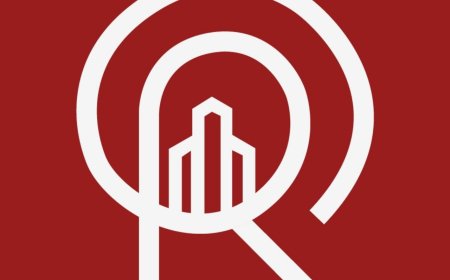Expert Guidance for Choosing the Right Home Loan in California
Buying a home in California can be overwhelming, especially when choosing the right loan. This guide explains the main mortgage types—fixed-rate, adjustable-rate, FHA, VA, and jumbo loans—and key factors like budget, down payment, credit score, interest rates, and future plans. By understanding options, comparing lenders, and consulting experts, buyers can make informed decisions, avoid common mistakes, and secure a home loan that fits their financial situation.

Buying a home in California is a dream for many, but the process can feel overwhelming, especially when it comes to choosing the right home loan. With so many options available—fixed-rate, adjustable-rate, FHA, VA, jumbo loans—knowing which loan suits your financial situation can make a huge difference in your home-buying journey. This guide provides expert advice to help you navigate the complex world of California home loans and make informed decisions.
Understanding the Basics of Home Loans
A home loan, or mortgage, is a financial agreement between you and a lender that allows you to borrow money to buy a property. You repay the loan over time through monthly installments, which usually include principal and interest, and sometimes taxes, insurance, and other fees.
In California, real estate prices vary widely by city and neighborhood, making it essential to choose the right loan. The wrong mortgage could cost you thousands over time, so understanding your options upfront is key.
Types of Home Loans in California
Choosing the right home loan in california starts with understanding the main types of morgtgage available in California:
1. Fixed-Rate Mortgage
A fixed-rate mortgage has a consistent interest rate for the entire loan term, usually 15, 20, or 30 years. This means your monthly payments remain predictable, making it easier to budget. Experts recommend this option if you plan to stay in your home long-term and want financial stability.
Pros:
-
Predictable monthly payments
-
Protection against interest rate hikes
Cons:
-
Slightly higher interest rates compared to adjustable loans
-
Less flexibility if you plan to move soon
2. Adjustable-Rate Mortgage (ARM)
An adjustable-rate mortgage has an interest rate that can change over time, usually after an initial fixed period (e.g., 5 years). This can be a good choice if you plan to sell or refinance before the rate adjusts.
Pros:
-
Lower initial rates
-
Potential savings if rates remain low
Cons:
-
Payments can increase after the initial period
-
Risky if interest rates rise significantly
3. FHA Loans
FHA loans are backed by the Federal Housing Administration and are designed for first-time buyers or those with lower credit scores. They often require smaller down payments, making homeownership more accessible.
Pros:
-
Lower down payment requirements
-
Easier qualification for buyers with less-than-perfect credit
Cons:
-
Requires mortgage insurance
-
May have limits on loan amounts in high-cost areas
4. VA Loans
VA loans are available to eligible veterans and active-duty military personnel. These loans often require no down payment and have competitive interest rates.
Pros:
-
No down payment required
-
Lower interest rates and no private mortgage insurance
Cons:
-
Only available to qualified veterans or service members
5. Jumbo Loans
California’s high home prices sometimes require jumbo loans, which exceed conventional loan limits. These loans often have stricter qualification criteria and higher interest rates.
Pros:
-
Enables purchase of high-value properties
-
Flexible terms with some lenders
Cons:
-
Higher credit score and income requirements
-
Larger down payment usually required
Factors to Consider When Choosing a Home Loan
Choosing the right home loan in today’s real estate marketplace involves more than just picking a type. Here are key factors experts recommend considering:
1. Your Budget and Monthly Payments
Before applying, figure out what you can comfortably pay each month, including taxes, insurance, and maintenance. Low payments can be tempting, but don’t stretch your budget.
2. Down Payment
The size of your down payment affects your loan options and monthly payments. While conventional loans often require 20% down, FHA loans may require as little as 3.5%. Consider how much you can realistically save without compromising other financial goals.
3. Credit Score
Your credit score impacts the interest rate you’ll receive. Higher scores typically get lower rates, saving you money over time. If your credit score is lower, consider improving it before applying or choosing an FHA loan that accommodates lower scores.
4. Loan Term
The loan term is how long you’ll repay your mortgage. Shorter terms mean higher monthly payments but less interest; longer terms lower payments but cost more overall.
5. Interest Rates
Interest rates can make a huge difference in your overall payment. Compare multiple lenders to find the best rate, and consider locking in a rate if you anticipate increases. An expert mortgage advisor can help you evaluate current market conditions and rate trends.
6. Flexibility and Future Plans
Think about your long-term plans. Are you planning to stay in the home for many years, or might you move in a few years? Your plans can influence whether a fixed-rate or adjustable-rate mortgage is better suited to your needs.
7. Lender Reputation
Not all lenders are created equal. Research lenders’ reviews, customer service, and transparency. Working with a trusted lender can make the home-buying process smoother and less stressful.
Expert Tips for a Smooth Home Loan Process
-
Get Pre-Approved Early: Pre-approval shows sellers you’re serious and helps you understand your budget.
-
Compare Multiple Lenders: Interest rates, fees, and terms can vary. Don’t settle for the first offer.
-
Understand All Costs: Review closing costs, PMI, and other fees before committing.
-
Ask Questions: A good lender should explain terms clearly, so don’t hesitate to ask for clarification.
-
Work with a Mortgage Advisor/Agent: Experts can guide you through options and help you avoid costly mistakes.
Common Mistakes to Avoid
Even with guidance, many buyers make mistakes when choosing a home loan:
-
Focusing Only on Interest Rates: Low rates are important, but also consider fees and terms.
-
Overextending Finances: Avoid loans that push your monthly payments to the limit.
-
Ignoring Future Plans: Choosing a short-term loan while planning to stay long-term can be costly.
-
Not Checking Credit Reports: Errors on your credit report can affect your approval and rate.
Conclusion
Choosing the right home loan in California doesn’t have to be overwhelming. By understanding loan types, assessing your finances, and following expert advice, you can find a mortgage that suits your needs and brings you closer to homeownership. Taking the time to research, compare options, and consult trusted experts can save you money and make the process smoother. Whether you’re a first-time buyer, a veteran using a VA loan, or navigating high-value markets, informed decisions are key to finding your ideal California home.




























